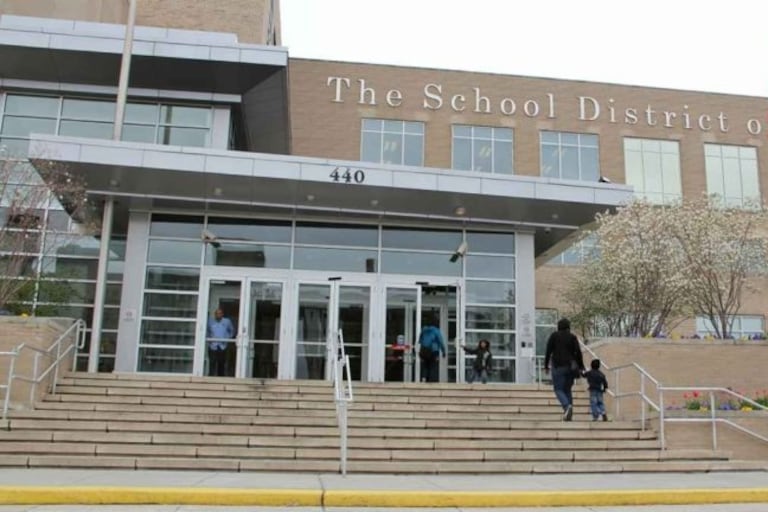Philadelphia’s Board of Education Thursday night unanimously approved a requirement that all school district employees get approval from the district’s communications office before speaking to the media.
When the policy was proposed months ago, the Philadelphia Federation of Teachers said the move would limit teachers’ ability to speak to the media. Others argued it would infringe upon district employees’ constitutional rights of freedom of speech.
Superintendent William Hite offered an explanation for the policy in response to a question from school board member Julia Danzi.
The new policy, he said, would “provide the media with accurate information background and any other information that’s relevant to whatever it is that they are interested in reporting.”
The policy approved Thursday is much longer and significantly different from the one first proposed in November, which board member Mallory Fix Lopez called “a gag order.” That policy would have required all 20,000 district employees to clear all press requests through the four-person communications office before speaking to media representatives.
Fix Lopez said that the earlier version appeared to bar, for instance, a basketball coach from talking to a sportswriter after an important game without first contacting the media team.
The new version makes a distinction between when a person is speaking on behalf of the district and when they are speaking as an individual, and says that it is not meant to interfere with employees’ First Amendment rights.
New sections lay out rules for “speaking in an official capacity” and “speaking as a private citizen.” If the latter, the employee is expected to do so after school hours and to “not make public statements known to be false.”
Another new sentence states that the district “endeavors to … support and empower employees to communicate with media about district matters” while promoting “accessible and accurate communication.”
One section says that principals shall notify in advance the media relations team about any “arranged media visit or invitation,” but doesn’t say that the invitation has to be cleared with the media team before it is extended.
“The Media Relations Team…shall work with members of the news media to encourage news coverage that is sensitive to the diversity of district families and staff, and is free of bias concerning race, ethnicity, education, income, sexual orientation, gender, religion, or disability,” according to the policy.
The last time the district adopted a media relations policy was in 2011, when it was under the control of the state-dominated School Reform Commission.






